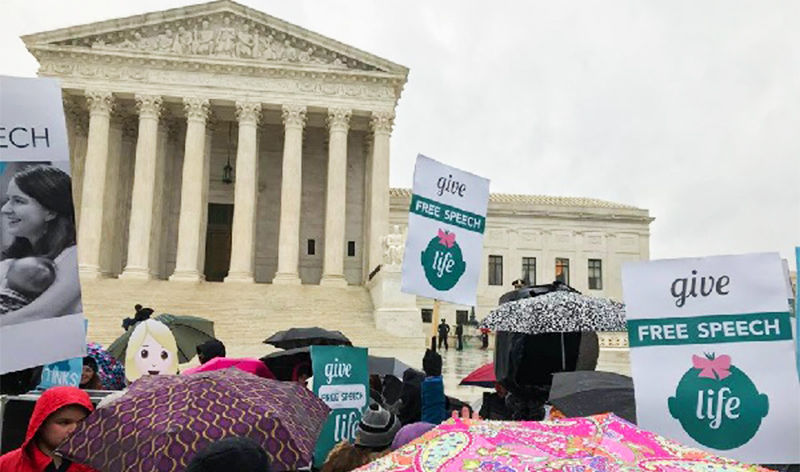Kerby Anderson
Can a state government compel speech? That is a question that surfaced in the Supreme Court case concerning a Christian baker. It came up again last week when the same court heard oral arguments about a California law that compels pro-life pregnancy centers to promote abortion.
Pro-life people with religious objections to abortion run these centers. But this case is much more than a religious liberty case. It is fundamentally a First Amendment free speech case. The law forces these pro-life centers to provide free advertisement for abortions through posters and their websites.
You would think that a federal court would strike down the law, but not the 9th Circuit Court of Appeals, that columnist George Will reminds us has “reasoning that is frequently novel” and “rulings that are frequently reversed.” To show the problem with the law, he poses this hypothetical.
“Suppose a pro-life state government were to require all publicly and privately funded abortion providers to advertise on their premises the locations and services of crisis-pregnancy centers. Or even to post the following accurate information on their premises, website, and advertisements.”
That would be such facts as the baby’s brain forms after 18 days. The heart begins to beat after three weeks, and brain waves are detected after six weeks. At seven weeks, the baby is kicking. At week nine, the baby can suck its thumb. By 26 weeks, the spinal cord and pain receptors are in place, and the baby can feel pain.
Of course, the abortion providers would howl with anger at such requirements. But essentially that is what the California legislature did by requiring pro-life pregnancy centers to promote abortion. Hopefully, the high court will understand that this is an important free speech issue and strike down the California law.
 Listen Online
Listen Online Watch Online
Watch Online Find a Station in Your Area
Find a Station in Your Area










 Listen Now
Listen Now Watch Online
Watch Online
